May 8, 2024 | 08:13 GMT +7
May 8, 2024 | 08:13 GMT +7
Hotline: 0913.378.918
May 8, 2024 | 08:13 GMT +7
Hotline: 0913.378.918
Organic agricultural production has recently become a popular topic of discussion in workshops, seminars and the mass media. However, it is important to understand organic agriculture and decide which production method is most economical under the current production circumstances.
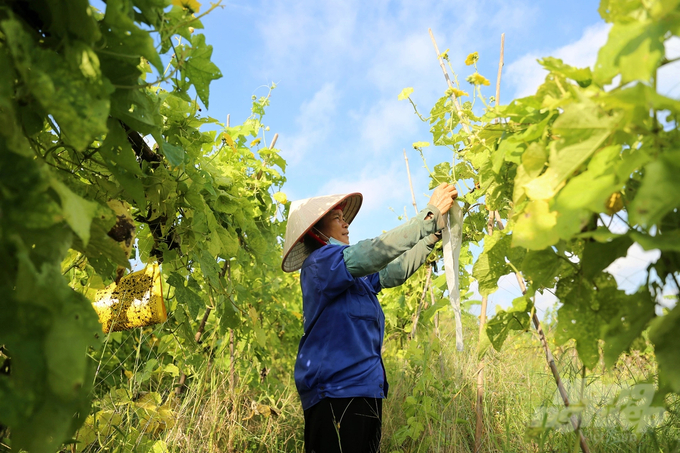
Although organic farming is gaining traction, Vietnam's existing unique characteristics require an apropriate strategy. Photo: Thai Anh.
With the outstanding advantage of being environmentally friendly, organic farming is an agricultural technique that yields clean and safe products.
Agricultural production in the organic farming method is generally thought to completely dismiss the use of chemicals including chemical fertilizers, pesticides, biological stimulants, etc. with the goal of creating safe products. However, this is a misleading opinion because there are other factors in organic farming in addition to the lack of chemical use.
On the other hand, there is confusion between organic farming methods and safe agricultural production. Namely, safe agricultural production processes allow for reasonable dosage of chemicals (such as chemical fertilizers, pesticides, etc.) within the permissible standard to not impact the environment.
The precarious state of food hygiene and safety in Vietnam is currently posing a great challenge to the country. The Government has established a policy of promoting safe agricultural production in response to such difficulties. However, many people consider that organic agriculture is a desperate measure to solve food safety issues, which gave rise to unsuitable policies in promoting organic farming.
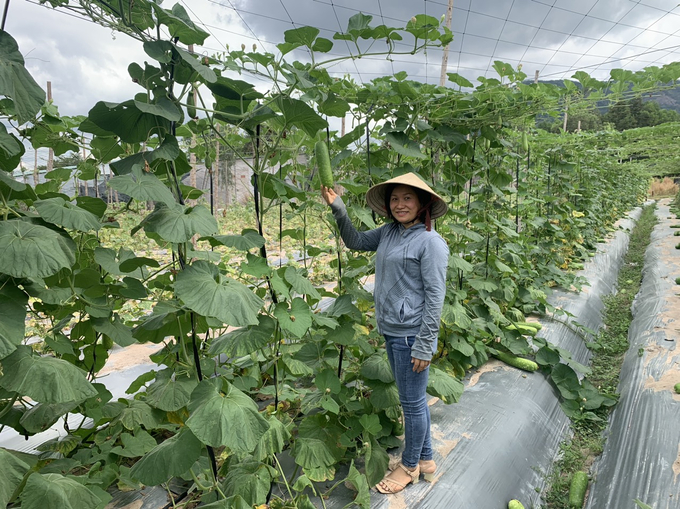
High costs and high product prices pose a considerable challenge to the development of organic farming. Photo: Hoang Trong.
This misconception may be the result of the confusion between organic farming and safe agricultural production without complete knowledge on organic farming methods. Namely, these methods require extremely strict and regulated conditions, such as arable land without heavy metals or metals below the allowable threshold; arable land cannot been subjected to the use of chemical fertilizers. If the land has been exposed to chemical fertilizers in the past, a minimum of 3 consecutive years without the use of any chemicals, such as fertilizers, pesticides, growth stimulants, preservatives, etc. must be maintained before the land is ready for organic farming.
Organic agricultural production areas must be isolated from dirty, polluted water sources, with special attention to pollution caused by the use of plant protection chemicals and other dirty water sources. These are the mandatory prerequisites for a product to be certified as organic.
Production practices around the world have shown that crops of organic farming methods see a 30% decrease in productivity, which has been scientifically proven through plant nutritional physiology. Different type of crop has varying nutritional needs in terms of volume and ratio of nitrogen, phosphorus, and potassium components.
For example: For every ton of rice, rice plants draw from the soil and fertilizer approximately 18kg of nitrogen, 3 to 4kg of phosphorus and 18 to 20kg of Potassium; for a 60 tons per hectare yield of sugarcane, the plants draw from the soil and fertilizer 96kg of nitrogen, 37kg of phosphorus and 115kg of potassium.
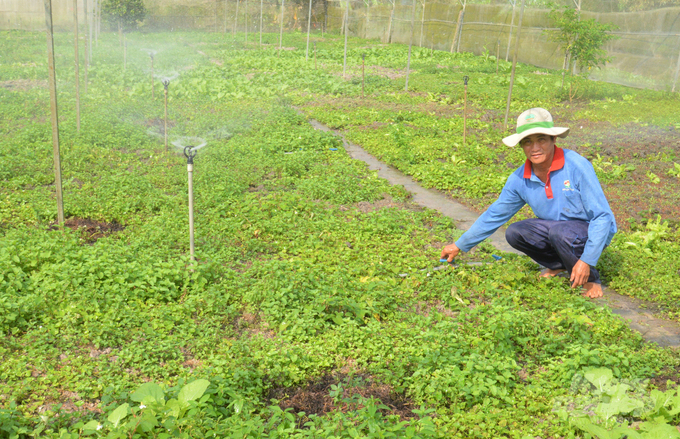
The national food security strategy should not place too much emphasis on organic farming. Photo: TL.
The content of nitrogen, phosphorus, potassium in 1 ton of organic fertilizer when compared to the content of N, P, K per ton of crop products demonstrates a significant deficiency in relation to the nutritional needs of the plant. It is not feasible to supplement N, P, K with organic fertilizers, due to the low content of N, P, K found in organic fertilizers as well as the slow decomposition nature of organic fertilizer. On the other hand, the ratio of N, P, K in organic fertilizer cannot match the ratio of N, P, K that plants need. This is the main reason why organic farming methods reduce crops' productivity by more than 30%.
Moreover, a decrease in crop yield and a two- to threefold increase in the cost of organic products has lead to selling prices three to four times higher compared to similar products on the free market.
The sustainable development of organic farming is questionable in the long terms given the narrow land and a large population with an average annual population growth of 1.05%. Because food security is a major concern, there is a debate between farming methods that yields high productivity and does not affect the environment (e.g: safe agricultural production, GAP production and so on) or organic farming methods with 30% lower crop's productivity. Organic farming is only a part under safe agricultural production so the writer of this article believes that the national food security strategy should not place too much emphasis on organic farming.
As a developing country, Vietnam's per capita income level is lower compared to other countries in the ASEAN region and considerably further behind developed countries.
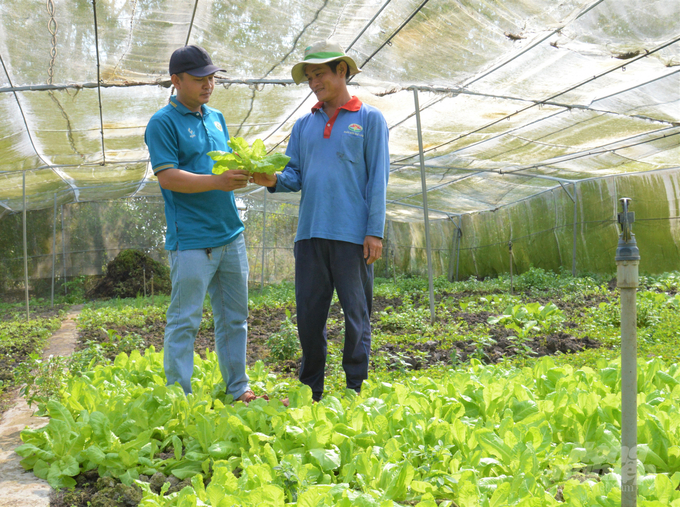
Products that meet food hygiene and safety conditions are favored by the majority of consumers today. Photo: TL.
Various safe agricultural production methods have been implemented throughout the country. The resulting products have a marginally higher selling price, but acceptable compared to the current living standards of most Vietnamese consumers. Conversely, organic products sold at three to four times higher than the market price will only be accessible to a minority of consumers with high income.
Organic farming produces safe and environmentally friendly products. However, this farming method is only a segment in high-quality agriculture. As a result, we should not consider organic agricultural products as the only safe and clean choice for consumers. Although it does not mean that we should not support or propagate the policy of organic agriculture development. Accordingly, I believe that there should be a suitable approach to the development of organic agriculture in the current modern world:

Organic farming is a positive trend to support. However, organic agricultural products should not be considered the only safe choice for consumers. Photo: Dao Thanh.
Firstly: organic farming should only be done in the forms of orders or contracts with foreign or domestic businesses to avoid a crowd effect that can lead to losses for the farmers when they fail to sail organic products in the market due to their high prices.
On the other hand, all types of medicinal plants should be produced organically.
Secondly: Areas engaging in organic farming across the country must be planned separately so as not to be affected by polluted water, chemical fertilizers, pesticides, etc., during the mixed production processes of varying modes of production.
Thirdly: Stakeholders involved in the production of organic agricultural products must be trained comprehensively in terms of its process. A reputable supervisory agency responsible for granting certificates of organic agricultural products must be established in the production process.
Translated by Nguyen Hai Long
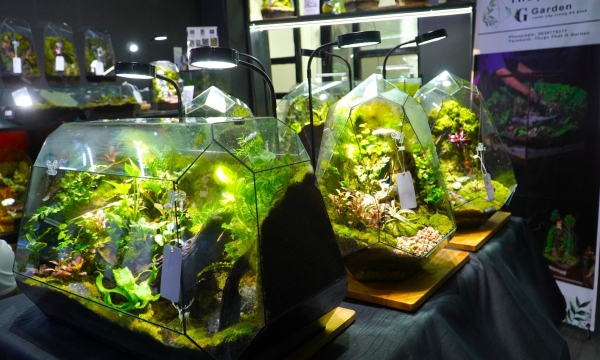
(VAN) Terrarium art has been more popularity in Vietnam, with meticulousness and delicacy, artisans create a minimal ecology to the living space of human.
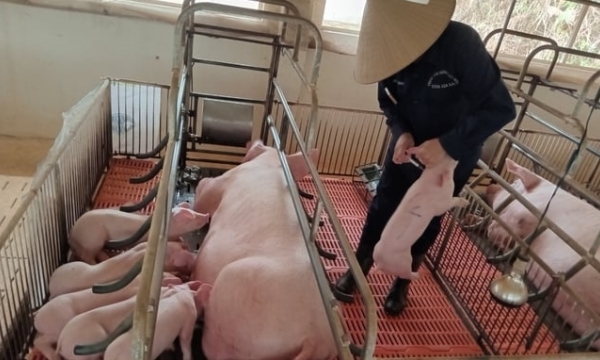
(VAN) Many barriers in legal procedures, as well as difficulties in land funds, discourage many large-scale pig farming investors in the Central Highlands.
/2024/05/06/2512-1-102207_688.jpg)
(VAN) Chairman of Hung Nhon Group Vu Manh Hung shared the investment orientation in high-tech agriculture at the announcement ceremony of the Decision approving the planning of Tay Ninh province on May 5.
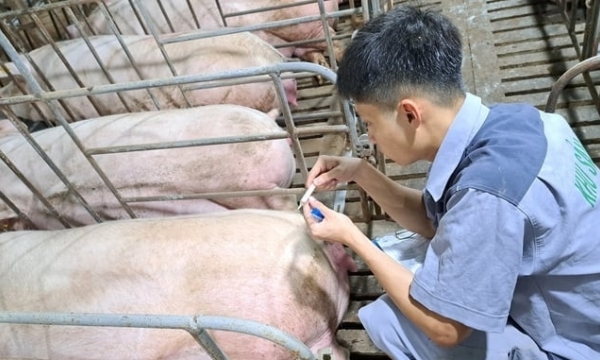
(VAN) Kon Tum province focuses on attracting high-tech livestock projects with closed-loop processes from production, breeding, to processing, and distributing.
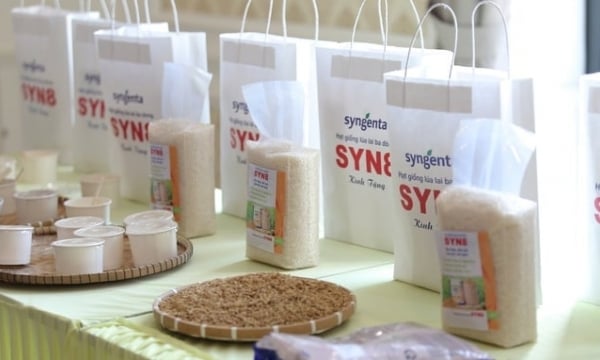
(VAN) The new Syn8 three-line hybrid rice variety, first introduced to Vietnam by Syngenta in 2020, has exhibited significant advantages after extensive testing and evaluation.
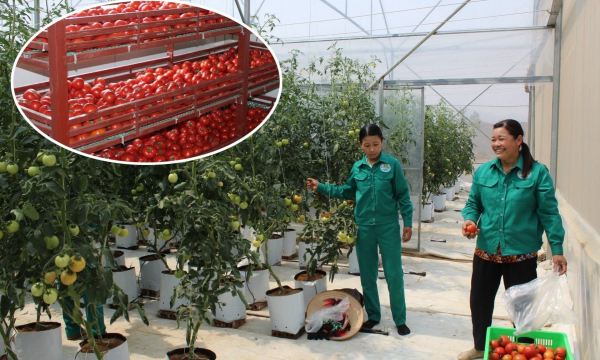
(VAN) The greenhouse complex stretches along the undulating hills, once abandoned, now serving as a source of fresh vegetables for over 16,000 students in the district.
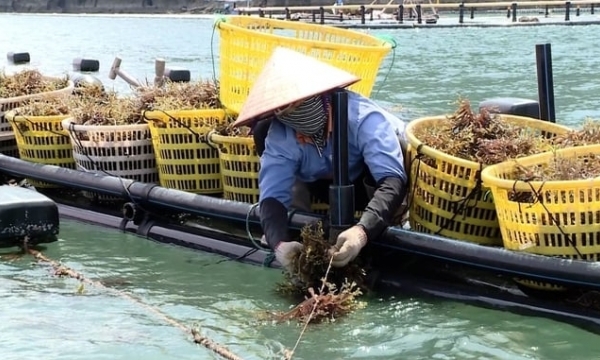
(VAN) Seaweed and marine algae have advantages in environmental protection and sustainable economic development, meeting food needs with uses in other fields